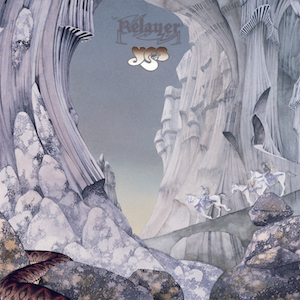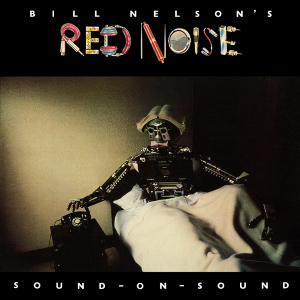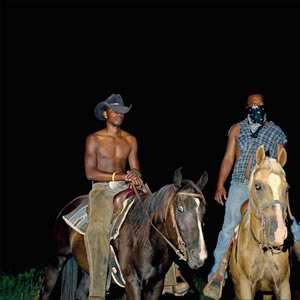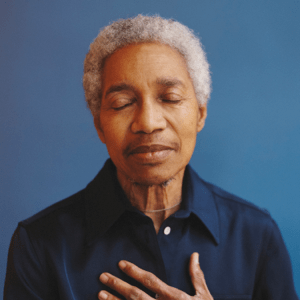
Jon Hassell was an American trumpet player and composer. He was best known for developing the concept of "Fourth World" music, which describes a "unified primitive/futurist sound" combining elements of various world ethnic traditions with modern electronic techniques. The concept was first articulated on Fourth World, Vol. 1: Possible Musics, his 1980 collaboration with Brian Eno.

Relayer is the seventh studio album by the English progressive rock band Yes, released in November 1974 by Atlantic Records. After keyboardist Rick Wakeman left the group in May 1974 over disagreements with the band's direction following their double concept album Tales from Topographic Oceans (1973), Yes entered rehearsals as a four-piece in Buckinghamshire. They auditioned several musicians, including Greek keyboardist and composer Vangelis, before settling with Swiss musician Patrick Moraz of Refugee who incorporated elements of funk and jazz fusion to the album. Relayer is formed of three tracks, with "The Gates of Delirium" on side one and "Sound Chaser" and "To Be Over" on side two.

Contemporary Records was a jazz record company and label founded by Lester Koenig in Los Angeles in 1951. Contemporary produced music from a variety of jazz styles and players.

Hans Hugo Harold Faltermeyer is a German musician, composer and record producer.

The Moog synthesizer is a modular synthesizer invented by the American engineer Robert Moog in 1964. Moog's company, R. A. Moog Co., produced numerous models from 1965 to 1981, and again from 2014. It was the first commercial synthesizer and established the analog synthesizer concept.

Stage is the second live album by the English musician David Bowie, recorded on the Isolar II Tour, and released through RCA Records in 1978. Stage has been reissued numerous times, each with expanded track listings.

1984 is the sixth studio album by English musician and composer Anthony Phillips, released in June 1981 on RCA Records. The album marks a change in musical style for Phillips as it is synthesiser-oriented compared to most of his previous albums which focused on more folk and acoustic music. After the music had been recorded, Phillips named the album after George Orwell's dystopian novel Nineteen Eighty-Four (1949).

Suzanne Ciani is an American musician, sound designer, composer, and record label executive who found early success in the 1970s, with her electronic music and sound effects for films and television commercials. Her career has included works with quadraphonic sound. She has been nominated for a Grammy Award for Best New Age Album five times. Her success with electronic music has her dubbed "Diva of the Diode" and "America's first female synth hero".

Osmium is the debut album of American funk band Parliament, led by George Clinton. The album has a psychedelic soul sound with a spirit of experimentation that is more similar to early Funkadelic than the later R&B-inspired Parliament albums. It was originally released in July 1970 on Invictus Records. The original vinyl release contained a glossy lyric sheet.

Labyrinth is a soundtrack album by David Bowie and composer Trevor Jones, released in 1986 for the film Labyrinth. It was the second of three soundtrack releases in which Bowie had a major role, following Christiane F. (1981) and preceding The Buddha of Suburbia (1993). The soundtrack album features Jones' score, which is split into six tracks for the soundtrack: "Into the Labyrinth", "Sarah", "Hallucination", "The Goblin Battle", "Thirteen O'Clock", and "Home at Last".

A synthesizer is an electronic musical instrument that generates audio signals. Synthesizers typically create sounds by generating waveforms through methods including subtractive synthesis, additive synthesis and frequency modulation synthesis. These sounds may be altered by components such as filters, which cut or boost frequencies; envelopes, which control articulation, or how notes begin and end; and low-frequency oscillators, which modulate parameters such as pitch, volume, or filter characteristics affecting timbre. Synthesizers are typically played with keyboards or controlled by sequencers, software or other instruments, and may be synchronized to other equipment via MIDI.

The Warner Bros. Studio Albums is a box set of five vinyl LPs by the rock group the Grateful Dead. It is a reissue of their first five studio albums: The Grateful Dead (1967), Anthem of the Sun (1968), Aoxomoxoa (1969), Workingman's Dead (1970), and American Beauty (1970). These albums were originally released by Warner Bros. Records. The box set was released by Rhino Records on September 21, 2010.
Analogue Productions is a record label specializing in the manufacture and distribution of reissue LP record albums, CDs and SACDs that primarily include jazz, blues, rock, folk and classical styles of music. The company is a division of Acoustic Sounds, Inc. founded by music entrepreneur Chad Kassem in Salina, Kansas, United States in 1992.

Sound-on-Sound is the sole album by English new wave band Bill Nelson's Red Noise, released in February 1979 by record label Harvest. Band leader Bill Nelson formed the group after the disbandment of Be-Bop Deluxe in 1978. The record was recorded with producer and engineer John Leckie, and marks a stylistic change for Nelson with its emphasis on synthesizers. His lyrics were inspired by science fiction and dystopian themes, which the musician tried to present in a humorous way. The album cover, featuring a bed-ridden robot, was photographed by Bishin Jumonji

Successor is the debut studio album by American experimental artist Fred Warmsley, under the alias Dedekind Cut. It was released on 11 November, 2016, by NON Worldwide and Hospital Productions. The album features guest vocals from Active Child, as well as co-production from producer Al Carlson, notable for his work on Oneohtrix Point Never's Replica and St. Vincent's Marry Me.
Beverly Glenn-Copeland is an American-born Canadian singer-songwriter. His albums include Keyboard Fantasies (1986). Glenn-Copeland began publicly identifying as a trans man in 2002.

Harlecore is the debut full-length album by British electronic musician Danny L Harle. It was released 26 February 2021 via Mad Decent. The album draws heavily on rave music, and features Harle taking on the personas of four different DJs, including: DJ Danny, MC Boing, DJ Mayhem and DJ Ocean.
Dreampunk is a microgenre of electronic music characterized by its focus on cinematic ambience and field recordings, combined with various traits and techniques from electronic genres such as techno, jungle, electro, and dubstep.
Keyboard Fantasies: The Beverly Glenn-Copeland Story is a 2019 British documentary film about Beverly Glenn-Copeland that was directed by Posy Dixon. The film "details the Black trans musician's rise to fame" over the previous few years. It includes talking heads interviews with Copeland and his collaborators, documentary footage and live performances.

The Ones Ahead is the fourth studio album by Canadian-American singer-songwriter Beverly Glenn-Copeland, released on July 28, 2023, through Transgressive Records. The album marks his first album of new music since 2004's Primal Prayer, released under the name Phynix, and the first under his real name since when he came out as a transgender man. It received positive reviews from music critics.


















